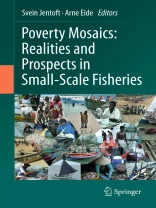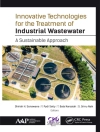Small-scale fisheries are a major source of food and employment around the world. Yet, many small-scale fishers work in conditions that are neither safe nor secure. Millions of them are poor, and often they are socially and politically marginalized. Macro-economic and institutional mechanisms are essential to address these poverty and vulnerability problems; however, interventions at the local community level are also necessary. This requires deep understanding of what poverty means to the fishers, their families and communities; how they cope with it; and the challenges they face to increase resiliency and improve their lives for the better.
This book provides a global perspective, situating small-scale fisheries within the broad academic discourse on poverty, fisheries management and development. In-depth case studies from fifteen countries in Latin America, Europe, South and Southeast Asia, and sub-Saharan Africa, demonstrate the enormously complex ecological, economic, social, cultural and political contexts of this sector. Conclusions for policy-making, formulated as a joint statement by the authors, argue that fisheries development, poverty alleviation, and resource management must be integrated within a comprehensive governance approach that also looks beyond fisheries.
The scientific editors, Svein Jentoft and Arne Eide, are both with the Norwegian College of Fishery Science, Faculty of Biosciences, Fisheries and Economics, University of Tromsø, Norway.
Inhaltsverzeichnis
Chapter 1 – Setting the Stage
By Svein Jentoft and Arne Eide
Introduction.- Chapter 2 – Avoiding Poverty
Chapter 2 – Avoiding PovertyDistributing Wealth in Fisheries
By Arne Eide, Maarten Bavinck and Jesper Raakjær.-
Chapter 3 – Situating Poverty
A Chain Analysis of Small-Scale Fisheries
By Ratana Chuenpagdee and Svein Jentoft.-
Chapter 4 – The Meaning of Poverty
Conceptual Issues in Small-Scale Fisheries Research
By Svein Jentoft and Georges Midré.-
Chapter 5 – Living on the Margin
The Poverty-Vulnerability Nexus in the Small-Scale Fisheries of Bangladesh
By Mohammad Mahmudul Islam.-
Chapter 6 – Occupation of Last Resort?
Small-Scale Fishing in Lake Victoria, Tanzania
By Paul O. Onyango.-
Chapter 7 – Vanished Prosperity
Poverty and Marginalization in a Small Polish Fishing Community
By Boguslaw Marciniak.-
Chapter 8 – More than Income Alone
The Anlo-Ewe Beach Seine Fishery in Ghana
By Marloes Kraan.-
Chapter 9 – Wealth, Poverty and Immigration
The Role of Institutions in the Fisheries of Tamil Nadu, India
By Maarten Bavinck.-
Chapter 10 – Addressing Vulnerability
Coping Strategies of Fishing Communities in Yucatan, Mexico
By Silvia Salas, Maiken Bjørkan, Felipe Bobadilla and Miguel A. Cabrera.-
Chapter 11 – Through Boom and Bust
Coping with Poverty in Sea Snail Fisheries on the Turkish Black Sea Coast
By Ståle Knudsen and Hakan Koçak.-
Chapter 12 – Community Response
Decline of the Chambo in Lake Malawi’s Southeast Arm
By Mafaniso Hara.-
Chapter 13 – To Make a Fishing Life
Community Empowerment in Small-Scale Fisheries in the Pearl Lagoon, Nicaragua
By Miguel González.-
Chapter 14 – Learning from the Experts
Attaining Sufficiency in Small-Scale Fishing Communities in Thailand
By Ratana Chuenpagdee and Kungwan Juntarashote.-
Chapter 15 – Facilitating Change
A Mekong Vietnamese Small-Scale Fishing Community
By Kim Anh Thi Nguyen and Ola Flaaaten.-
Chapter 16 – Creating Action Space
Small-Scale Fisheries Policy Reform in South Africa
By Moenieba Isaacs.-
Chapter 17 – Building Resilience
Fisheries Cooperatives in Southern Sri Lanka
By Oscar Amarasinghe and Maarten Bavinck.-
Chapter 18 – Moving out of Poverty
Conditions for Wealth Creation in Small-Scale Fisheries in Mozambique
By Ana Menezes, Arne Eide and Jesper Raakjær.-
Chapter 19 – The Merits of Consensus
Small-Scale Fisheries as a Livelihood Buffer in Livingston Town, Guatemala
By Hector Andrade and Georges Midré.-
Chapter 20 – A Better Future
Prospects for Small-Scale Fishing People
By Svein Jentoft, Arne Eide, Maarten Bavinck, Ratana Chuenpagdee and Jesper Raakjær.-
Biographies of the Pov Fish Team.- Index of Keywords.












